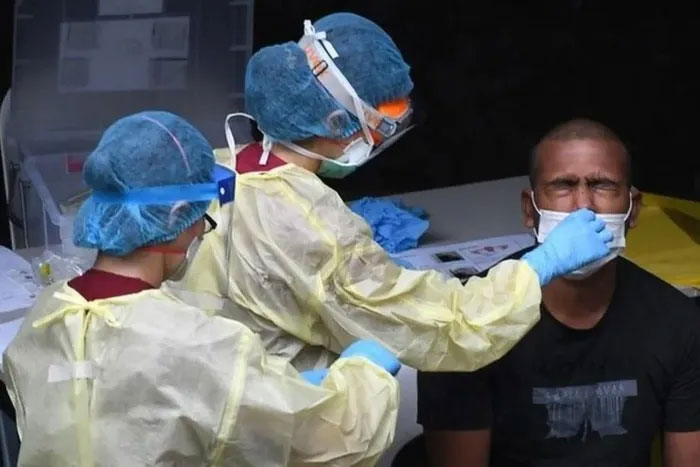A new subvariant of Omicron, known as XBB, is causing a surge of Covid-19 cases in Singapore.
In just the past week, the “Lion City” has recorded an average of 7,716 cases per day, a significant increase from 2,000 cases the previous month. According to forecasts by Singapore’s Minister of Health Ong Ye Kung, this wave of the pandemic is expected to peak in mid-November, with daily infections ranging from 15,000 to 25,000.
While he assessed “this is a short and intense outbreak”, Mr. Ong also expressed optimism regarding the ability of patients to recover “through vaccination and natural immunity from previous infections.”

The XBB variant is causing a new wave of the pandemic in Singapore. (Illustrative image)
What is XBB?
XBB is a new subvariant of Omicron, also referred to as strain BA.2.10. Discovered in August 2022, XBB has now appeared in over 17 countries, including Singapore, India, Japan, Australia, and the United States.
Some experts have described XBB as the Omicron variant “the worst so far” due to its unprecedented speed of transmission and its ability to evade existing vaccines. “XBB is exhibiting superior characteristics compared to all other subvariants,” Mr. Ong stated in a press briefing last Tuesday.
However, in practice, XBB has not caused more severe symptoms compared to previous variants. So far, the majority of patients in Singapore continue to report mild symptoms, such as a sore throat or mild fever, especially among those who have been vaccinated.
How are previously vaccinated individuals protected?
Dr. Leong Hoe Nam, an infectious disease specialist at Mount Elizabeth Novena Hospital in Singapore, shared that previous vaccination programs, which included three complete mRNA doses or four doses of Sinovac, “are still very effective in preventing severe illness.” He also indicated that unvaccinated individuals are at a higher risk of severe illness when infected with XBB and other variants of the coronavirus.


















































